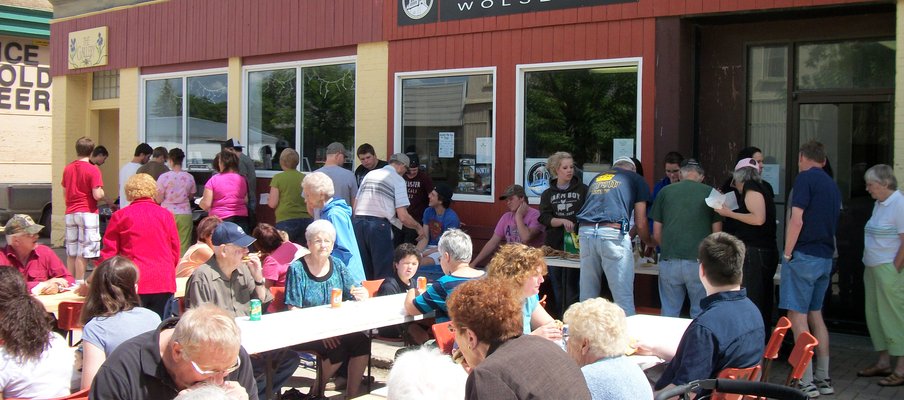Main Street Program continues to revitalize Saskatchewan Communities

Related Programs

Traditionally, Main Street has been the hub of the community for towns and villages throughout the province. Four Saskatchewan communities are now taking steps to ensure it remains that way for years to come.
In 2011, the communities of Indian Head, Maple Creek, Prince Albert and Wolseley were selected to participate in the Main Street Saskatchewan Program. The program uses heritage conservation to deliver economic development and economic revitalization while supporting arts, culture and heritage in Saskatchewan.
Tara-Leigh Heslip, Main Street Program coordinator for Indian Head, says, “One of the strongest things that I think will come out of the Main Street Program is a strong regional tourism plan that’s focused on culture and heritage.”
Eighteen Saskatchewan communities initially submitted proposals to participate in the three-year pilot project, which is funded by the Saskatchewan Ministry of Parks, Culture and Sport. A competitive process narrowed the applicants down to the final four based on community readiness, community capacity, community support, historic buildings and the potential for growth.
Like the Saskatchewan communities involved in the program, the Main Street Program has a proud history. Heritage agencies in Canada and the United States developed programs in the 1970s to encourage the sustainability of traditional commercial districts.
The National Trust for Historic Preservation administers the Main Street Program in the United States, supporting programs in more than 1,600 communities. In Canada, Heritage Canada Foundation’s Main Street Program sponsors economic development and heritage building conservation efforts in dozens of communities.
In Wolseley, the Main Street Program is already having an impact.
“What has happened in Wolseley is extraordinary,” said Wolseley Main Street coordinator Ed Attridge. “We have something special going on here. We have taken more than $120,000 in provincial funding and used that as an incentive to encourage a reinvestment in heritage buildings of $1.1 million.”
As a result of the success of the program in Saskatchewan, Heslip and Attridge were invited to present at the Heritage Canada Foundation summit in Montreal.
“We went there thinking we were spokes in the wheel of heritage,” Attridge suggested, “but what we learned was that we’re really where the rubber meets the road.”
Some of the Saskatchewan communities participating in the Main Street Program have taken it beyond an economic outlook, blending it with cultural planning, which is funded through SaskCulture.
Heslip adds, “We’re hoping to see some long-term benefits for the community as a result of doing this because the official community plan will now have a real strong cultural component to it.”
“For example, we have a theatre in our community that is the original opera house that was built in 1904. It’s one of the small theatres facing closure in the digital age, so we’re working to save the theatre and develop further potential out of that venue – a cultural centre for the region.”
Through the Ministry of Parks, Culture and Sport, the Main Street Program provides matching funding to help cover operating costs and capital expenses. In turn, it is creating an environment for businesses to grow while maintaining heritage conservation in each community.




